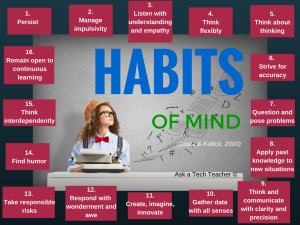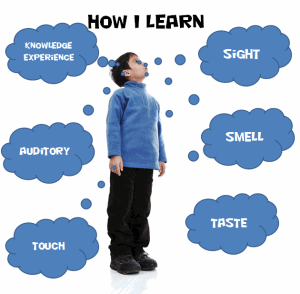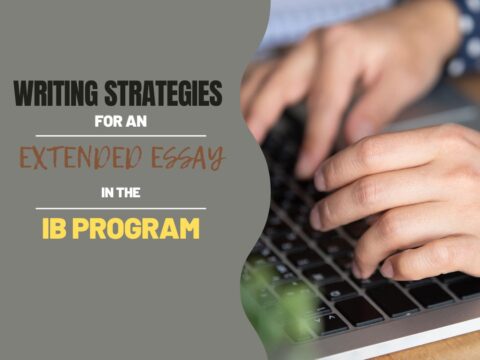 Pedagogic experts have spent an enormous amount of time attempting to unravel the definition of ‘educated’. It used to be the 3 R’s–reading, writing, and ‘rithmetic. The problem with that metric is that, in the fullness of time, those who excelled in the three areas weren’t necessarily the ones who succeeded. As long ago as the early 1900’s, Teddy Roosevelt warned:
Pedagogic experts have spent an enormous amount of time attempting to unravel the definition of ‘educated’. It used to be the 3 R’s–reading, writing, and ‘rithmetic. The problem with that metric is that, in the fullness of time, those who excelled in the three areas weren’t necessarily the ones who succeeded. As long ago as the early 1900’s, Teddy Roosevelt warned:
“C students rule the world.”
It’s the kids without their nose in a book that notice the world around them, make connections, and learn natively. They excel at activities that aren’t the result of a GPA and an Ivy League college. Their motivation is often failure, and taking the wrong path again and again. As Thomas Edison said:
“I have not failed. I’ve just found 10,000 ways that won’t work.”
Microsoft founder, Bill Gates, and Albert Einstein are poster children for that approach. Both became change agents in their fields despite following a non-traditional path.
In the face of mounting evidence, education experts accepted a prescriptive fact: student success is not measured by milestones like ‘took a foreign language in fifth grade’ or ‘passed Algebra in high school’ but by how s/he thinks. One curated list of cerebral skills that has become an education buzz word is Arthur L. Costa and Bena Kallick’s list of sixteen what they call Habits of Mind (Copyright ©2000):
-
- Persisting
-
- Managing impulsivity
-
- Listening with Understanding and Empathy
-
- Thinking Flexibly
-
- Thinking about Thinking
-
- Striving for Accuracy
-
- Questioning and Posing Problems
-
- Applying Past Knowledge to New Situations
-
- Thinking and Communicating with Clarity and Precision
-
- Gathering Data through All Senses
-
- Creating, Imagining, Innovating
-
- Responding with Wonderment and Awe
-
- Taking Responsible Risks
-
- Finding Humor
-
- Thinking Interdependently
- Remaining Open to Continuous Learning
Together, these promote strategic reasoning, insightfulness, perseverance, creativity and craftsmanship.
But they’re not new. They share the same goals with at least three other widely-used education systems: 1) Common Core (as close as America gets to national standards), 2) the International Baccalaureate (IB) program (a well-regarded international curriculum, much more popular outside the US than within), and 3) good ol’ common sense. Below, I’ve listed each Habit of Mind with a brief explanation of what that means (in italics). I then point out connections to Common Core, the IB Program, and the common sense your grandma shared with you. The result is a compelling argument that education is less a data download and more a fitness program for our brains.
Persisting
Stick with a problem, even when it’s difficult and seems hopeless.
Winston Churchill said, “Never, never, in nothing great or small, large or petty, never give in…” The same decade, Albert Einstein said:
“It’s not that I’m so smart, it’s just that I stay with problems longer.”
The Common Core is not a curriculum, rather a collection of forty-one overarching Standards in reading, writing, language, math, and speaking/listening that shape a student’s quest for college and career. Sprinkled throughout are fundamental traits that go beyond the 3R’s and delve deeply into the ability of a student to think. The math standards require students learn to ‘persevere in solving problems‘.
The IB Program has twelve attitudes that are fundamental to every learner: appreciation, empathy, commitment, enthusiasm, confidence, independence, cooperation, integrity, creativity, respect, curiosity, and tolerance. Students exhibiting the attitude of commitment persist in their own learning, persevere no matter the difficulties.
Managing Impulsivity
Consider options. Think before speaking.
Among his endless words of wisdom, Benjamin Franklin said:
“It is easier to suppress the first desire than to satisfy all that follow it.”
Common Core Standards tell us to ‘Use appropriate tools strategically’.
Besides the twelve attitudes listed above, the IB Program names ten traits that profile a learner: inquirer, knowledgeable, thinker, communicator, principle, open-minded, caring, a risk-taker, balanced, and reflective. Students who are reflective give thoughtful consideration before acting.
Listening with Understanding and Empathy
“…grant that I may not judge my neighbor before I have walked for a day in his moccasins.”
..
Thinking Flexibly
Consider the input of others. Weigh options.
James Yorke said:
“The most successful people are those who are good at Plan B.”
I love that sentiment.
Common Core describes this in detail under Speaking and Listening Standards, including the importance of listening to others and building on the input of others.
‘Thinking flexibly’ is inherent to many of the IB learner attitudes, especially cooperation, respect, and tolerance. It is also integral to the Learner Profile ‘Open-minded’. These are students who are open to the perspectives, values and traditions of other individuals and communities.
Thinking about Thinking
Consider the impact of choices on myself and others.
Henry Ford said:
“Thinking is the hardest work in the world, which is why so few engage in it.”
Common Core asks that students ‘independently discern’. In fact, critical thinking skills are implicit in almost all of the core literacy skills and mathematical practices. Most famously, Common Core takes simple math and insists students understand not the algorithm, but the logic behind it. In short, they must think and understand, not just do the rote drill.
The IB Learner Profile includes ‘thinkers’ as those who “exercise initiative in applying thinking skills critically and creatively to recognize and approach complex problems and make reasoned, ethical decisions”.
Striving for Accuracy
Check for errors.
Wyatt Earp once said, “Fact is fine, but accuracy is everything.” Want someone more famous? How about Injinji (they manufacture toesocks):
“Go the extra mile. It’s never crowded.”
Common Core Standards expect students to ‘value evidence’, ‘make arguments evidence-based,’ and ‘comprehend and evaluate complex texts’ as students draw conclusions. Students are asked to follow a process that includes draft/write/rewrite as part of the writing process.
IB calls this ‘principled’ and ‘balanced’.
Questioning and Posing Problems
Develop a questioning attitude. Consider what information is needed.
This became popular in Ancient Greece with the birth of democracy. Socrates helped citizens reach decisions and unravel problems by posing questions. When we use it today, we call it the Socratic Method.
Common Core asks that learners ‘attend to precision’, to research questions/problems and find answers that are evidence-based. When listening to speakers, students are expected to come prepared to listen attentively and ask relevant questions.
IB expects students to be inquirers, reflective, and risk-takers, not afraid to ask questions and pose problems. Being able to ask a question is the first step towards becoming an inquirer.
Don’t be discouraged, though, if questions don’t always have ready answers. As Laurence J. Peter said:
“Some problems are so complex that you have to be highly intelligent and well-informed just to be undecided about them.”
Applying Past Knowledge to New Situations
Consider prior knowledge and experience.
The education community (especially those who follow Understanding by Design–UbD) call this ‘transfer of knowledge’. Margaret Mead famously said, ‘It takes a village’ to raise a child, referring to the accumulation of knowledge that must be taught.
Common Core expects students to ‘be immersed in information about the world around them if they are to develop the strong general knowledge and vocabulary they need to become successful…’
The IB learner profile considers students ‘knowledgeable’ who explore concepts, ideas and issues that have local and global significance.
Thinking and Communicating with Clarity and Precision
Strive to be clear when speaking and writing.
Over two thousand years ago, Plato explained the importance of clear speaking:
“Wise men speak because they have something to say; fools because they have to say something.”
Common Core outlines this in the Speaking and Listening Standards–expecting students to join conversations prepared and with evidence.
The IB Learner Profile ‘Communicators’ is explained as those who “understand and express ideas and information confidently and creatively in more than one language and in a variety of modes of communication.”
Gathering Data through All Senses
Observe, listen, smell, collect all the data available.
Grandma’s wisdom warns, “Be aware of your surroundings.” Over half of communication is delivered through non-spoken body language. George Bernard Shaw said:
“The single biggest problem in communication is the illusion that it has taken place.”
Common Core calls this ‘using appropriate tools strategically’ and ‘evaluating information presented in diverse media and formats’. It expects arguments and discussions to be based on evidence, nothing else.
The IB philosophy includes eight ‘Ways of Knowing (WOK)’–traits which students possess to obtain and manipulate knowledge. This includes language, sense perception, emotion, reason, imagination, faith, intuition, and memory. Significantly included are ‘sense, emotion, imagination, and intuition’.
Creating, Imagining, Innovating
Think about how something might be done differently from the “norm”.
Einstein warned of the importance of having creative and innovative thinkers:
“The significant problems we face cannot be solved at the same level of thinking we were at when we created them.”
Common Core expects learners to ‘demonstrate independence’.
IB calls these learners ‘inquirers’ and ‘risk-takers’. It defines creativity as ‘being creative and imaginative in their thinking and in their approach to problem solving and dilemmas.’
Responding with Wonderment and Awe
Thomas Jefferson said:
“Nothing can stop the man with the right mental attitude from achieving his goal; nothing on earth can help the man with the wrong mental attitude.”
Common Core expects students to be ‘self-directed learners’. See/think/wonder is the basis for inquiry in the classroom.
In IB, this approach is included under ‘thinkers’ as a broad understanding of the part of ‘see/think/wonder’ in effective learning. It is also included as an IB Attitude ‘appreciation and enthusiasm’. This refers to the sense of wonder and beauty about the world.
Taking Responsible Risks
“Trouble creates a capacity to handle it.”..
Finding Humor
Humor is well-accepted as the great lubricant for everything from tension to stress, disagreements, and unhappiness. Richard Sloma brings it back to Habits of Mind and problem solving:
“Never try to solve all the problems at once–make them line up for you one-by-one.”
This is the only Habit of Mind I didn’t find direct correlations in either Common Core or IB. This is surprising because many great thinkers believe in the power of humor to unpack thinking. Here’s what Francis Bacon says:
“Imagination was given to man to compensate him for what he is not; a sense of humor to console him for what he is.”
…and Stephen Colbert:
“You can’t laugh and be afraid at the same time — of anything. If you’re laughing, I defy you to be afraid.”
Thinking Interdependently
Willing to learn from others in reciprocal situations and abide by their decisions.
Helen Keller said, “Alone we can do so little. Together we can do so much.” Your sports coaches probably quoted Phil Jackson:
“The strength of the team is each individual member. The strength of each member is the team.”
Common Core over and over again expects learning to be done collaboratively–and then shared, so as one students grows, all grow by teaching each other.
The IB Program expects students to “…work effectively and willingly in collaboration“.
Remaining Open to Continuous Learning
Wendell Berry said:
“When we no longer know what to do, we have come to our real work and when we no longer know which way to go, we have begun our real journey. The mind that is not baffled is not employed. The impeded stream is the one that sings.”
Kahlil Gabran says:
“Perplexity is the beginning of knowledge.”
For Common Core, this is considered the ability to ‘comprehend as well as critique’. Learners must understand, but continue to grow as they revisit, critique, and blend in new learning.
IB considers ‘open-minded’ one of the core traits and ‘curiosity’ the trait of a life-long learner.
If you’ve never been the A student, varsity sports player, or Most Likely to ***, and thought that meant you’d never amount to much, think again. Success is about who can critically think, collect evidence, make connections, keep their eye on the ball as the world falls apart around them, see the forest for the trees–and stay positive. If you are that person, it will be enough.
–First published on TeachHUB
More on IB and Common Core:
How to Teach Students to Solve Problems
Jacqui Murray has been teaching K-18 technology for 30 years. She is the editor/author of over a hundred tech ed resources including a K-12 technology curriculum, K-8 keyboard curriculum, K-8 Digital Citizenship curriculum. She is an adjunct professor in tech ed, Master Teacher, webmaster for four blogs, an Amazon Vine Voice, CSTA presentation reviewer, freelance journalist on tech ed topics, contributor to NEA Today, and author of the tech thrillers, To Hunt a Sub and Twenty-four Days. You can find her resources at Structured Learning.





































Best. Column. Ever. You have put everything I believe about teaching, learning, living, in one place. Like the old “dear Abby” columns I have clipped and placed in photo albums in years past, I will keep this one, too. It is being shared with my colleagues, some of the sayings will become quoted challenges for my children in class this year (and my grandson!), and it encourages me to continue in what someone recently said about “finding my genius” (ajjuliani). Well stated. Thank you.
Thanks. I appreciate your feedback. There’s so much about education that’s outside the 3R’s–the Habits of Mind really resonated with me across all curricula. I’ve followed so many teaching methods, but this ties them all together.
And thanks for sharing with your colleagues.
I absolutely love this! Wishing more teachers could see beyond the three R’s. Common Core has begun the conversation, however so many teachers/parents see the CCSS as “evil” and a government take-over of education…If teachers can live these habits of mind and be a role model for students, our children are bound to learn by osmosis!
This gets to the basics of learning, doesn’t it? I had great hopes for CCSS too–mostly because of its emphasis on turning learning into a way of life. I still have my fingers crossed.
I find it really helpful. I hope to teach in a school soon and this gives me a good thing to look into for the changes in the curriculum we have. Thank you 🙂
Absolutely. Education is moving away from ‘sage on the stage’ to expecting critical thinking from students. Habits of Mind, Depth of Knowledge, and a variety of others put this sort of learning at the pinnacle of what we want to teach students.